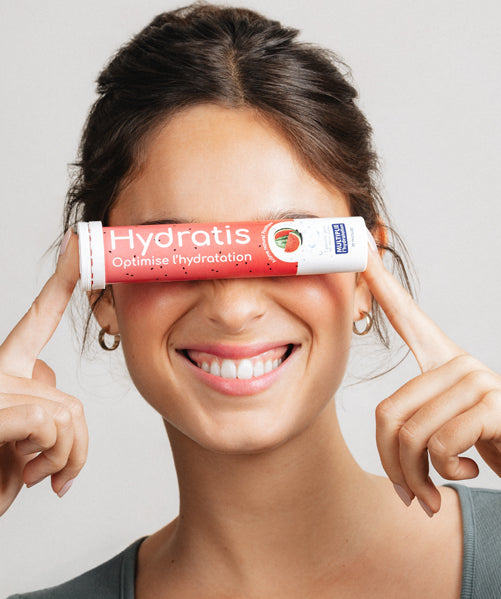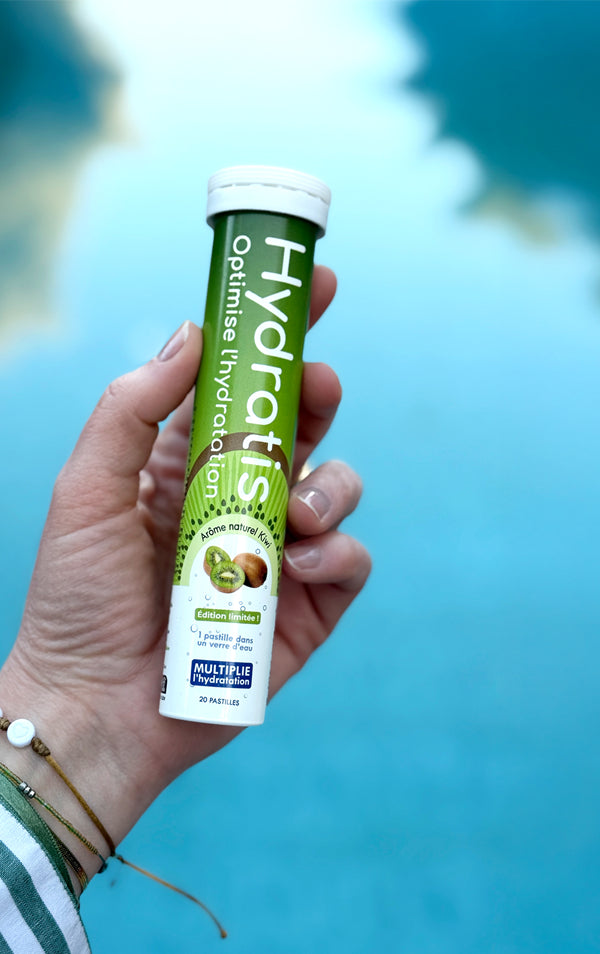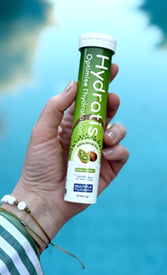Diluted lemon juice is often touted as a miracle drink with numerous benefits. For some, it's a holdover from old wives' tales about boosting the immune system, improving digestion, or soothing a sore throat. For others, it's become a "detox" routine and a weight-loss aid . But is it really a good idea to drink lemon every day?
Discover in this article the benefits , what science says, the recommended quantities and the precautions to take.
Why do so many people drink lemon every day?
An old wives' remedy brought back into fashion
Considered a superfood , this citrus fruit has been used as a natural remedy for centuries . It is attributed with antiseptic, invigorating, anti-inflammatory, and digestive properties . Today, it is making a comeback thanks to the growing interest in natural practices and healthy nutrition .
Drinking lemon on an empty stomach: a well-established trend
As you've probably noticed, on social media and wellness blogs , drinking lemon water upon waking before eating is highly recommended. This trendy routine is supposed to " wake up " the digestive system , reduce fatigue , improve skin , aid weight loss... and even purify the body. Some of these claims are true , but others are based on misconceptions .
The potential benefits of drinking lemon every day

A natural source of vitamin C and antioxidants
Lemons are rich in essential nutrients . Eating them daily provides a good source of vitamin C and flavonoids . They also contain minerals and trace elements (potassium, sodium, calcium, copper, phosphorus, etc.) in modest quantities, as well as traces of vitamins A, E, K, and B.
Immune system strengthening
The idea that consuming lemon would boost immunity, It relies in part on its richness in vitamin C. This antioxidant limits oxidative stress and strengthens your natural defenses against common infections such as colds or pneumonia .
However, be aware that this routine does not replace a healthy lifestyle or medical supervision.
Diuretic effect and hydration
Whether it's lemon-flavored or not , water is a natural diuretic . Therefore, it's not the lemon that directly stimulates the kidneys. However, it makes the drink more palatable and encourages you to drink more , thus improving hydration. Drinking lemon water, on the other hand, increases citrate levels in the urine and limits the formation of kidney stones.
Beneficial effect on digestion and transit
Drinking diluted lemon juice before a meal can help you digest better . The citric acid in lemons promotes the secretion of gastric juices , speeds up the passage of food through your stomach, and may regulate blood sugar . While these effects are promising, more research is needed to confirm them.
Can it help burn fat and lose weight?
No food melts fat , and lemons are no exception. However, replacing sugary drinks and sodas with homemade lemon water naturally reduces your calorie intake. Furthermore, drinking one or two glasses of any beverage before a meal can increase satiety and help limit portion sizes.
Alkalizing effect: fact or fiction?
After being metabolized , this citrus fruit leaves alkaline residues that can slightly alter the pH of urine , but not that of blood . Blood pH is strictly regulated by your buffering systems, lungs, and kidneys. Therefore, lemon does not alter blood pH. acid-base balance Contrary to popular belief , its " alkalizing " action is limited to the urine.
Does lemon really detoxify the liver?
There is no no scientific evidence According to this theory, lemon " detoxifies " the liver. This organ has its own mechanisms for eliminating toxins and functions continuously, without external assistance.
How to consume lemon on a daily basis?
Fresh lemon juice or warm lemon water?
Freshly squeezed juice remains the best option for fully benefiting from vitamin C and other nutrients. Mixed with warm water, it can be drunk more easily.
What time of day is best?
The benefits come from the fruit's composition , not from when it's eaten. So you can eat it in the morning, as some recommend, but also at other times of the day, before or after lunch or dinner.
Lemon alone or mixed (honey, ginger, turmeric...)
You can eat it plain , or combine it with honey to soften the acidity, or with ginger or turmeric for their antioxidant and anti-inflammatory properties. Herbal teas are also a good base. However, avoid added sugars and commercial syrups.
How many lemons a day is a reasonable amount?
For a healthy adult , half to one lemon per day ( 30–60 ml of diluted juice) is sufficient. This amount is generally safe in most cases. Pregnant women may require additional intake. is, however, tolerated.
Pulco lemon or industrial juice: a good idea?
Bottled juices , like Pulco, don't have the same nutritional value as fresh juice . In addition, they often contain additives, preservatives, and too much sugar. Opt for freshly squeezed juice at home or, failing that, 100% natural products .
Side effects and contraindications to be aware of
The acidity of lemon can attack enamel and cause tooth sensitivity . To limit this risk, use a straw and rinse your mouth afterwards.
Citric acid can also aggravate ulcers, gastroesophageal reflux disease (GERD), or stomach irritations . If you have a sensitive stomach, dilute the lemon juice further and do not drink it on an empty stomach.
Fruits like lemons can alter bioavailability of certain medications . If you are taking medication , consult your doctor before taking it daily .
What science says about lemons and their benefits

Studies on vitamin C and immunity
The role of vitamin C is not limited to reducing oxidative stress . Several studies, including a scientific review, have shown that vitamin C's role is not limited to reducing oxidative stress. Published on Nutrients , it indicates that it supports the natural protective barriers of the skin and mucous membranes . It also optimizes the action of leukocytes , cells that fight infections and diseases , and regulates inflammation .
Antioxidants and cardiovascular protection
The flavonoids present in lemons may contribute to protect your heart by helping to regulate blood pressure , limit inflammation of blood vessels and improve their ability to dilate.
These compounds also promote a healthier lipid profile (less "bad cholesterol"), improve insulin sensitivity while reducing the risk of diabetes , itself a risk factor for cardiovascular disease .
These benefits are most noticeable when combined with a balanced diet and an active lifestyle.
Cancer, liver, weight loss: what is proven and what is not
To date, no serious study has demonstrated that lemon prevents or treats cancer .
Some flavonoids appear to inhibit the growth of cancer cells in animals, but these observations have not yet been confirmed in humans .
A review published in 2025 suggests that naringenin , a flavonoid found in citrus fruits, could reduce fat accumulation in the liver and improve certain liver enzymes. However, these results remain preliminary .
As for weight loss , there is no evidence that lemon alone makes you lose weight . It's a healthy and refreshing food, but not a miracle solution .
FAQ - Drinking lemon daily
Is it good to drink lemon every day?
Yes, if consumption remains moderate. Diluted juice provides vitamin C and other essential nutrients, but it does not replace a varied diet or medical supervision.
Does drinking lemon help you lose weight?
Not directly. However, replacing sodas with lemon water only reduces calorie intake.
Should you drink lemon water hot or cold?
Warm or cold water is best. Too hot, and it degrades vitamin C.
Why not use too much lemon?
Excessive consumption can irritate teeth, cause reflux or digestive discomfort, and interfere with certain treatments.
In summary: should we drink lemon every day?
As long as you are in good health , you can drink lemon water daily to get your fill of vitamin C. It's ideal for varying your sources of hydration and limiting sodas .
Always drink it diluted, ideally with a straw. Rinse your mouth with clean water afterward. Limit yourself to between half a lemon and one lemon per day. Finally, if you are taking medication, suffer from digestive problems, or are following a specific diet, consult your doctor or a nutritionist before making this a habit.
Bibliography
Ahmed, OM, AbouZid, SF, Ahmed, NA, Zaky, MY, & Liu, H. (2021) . An Up-to-Date Review on Citrus Flavonoids: Chemistry and Benefits in Health and Diseases. Current pharmaceutical design , 27 (4), 513–530. https://doi.org/10.2174/1381612826666201127122313
Hemilä, H., & Chalker, E. (2013) . Vitamin C for preventing and treating the common cold. Cochrane Database of Systematic Reviews , (1), Article CD000980.
https://doi.org/10.1002/14651858.CD000980.pub4
Seltzer, M.A., Low, R.K., McDonald, M., Shami, G.S., & Stoller, M.L. (1996) . Dietary manipulation with lemonade to treat hypocitraturic calcium nephrolithiasis. The Journal of urology , 156 (3), 907–909. https://doi.org/10.1016/S0022-5347(01)65659-3
Freitas, D., Boué, F., Benallaoua, M., Airinei, G., Benamouzig, R., Lutton, E., Jourdain, L., Dubuisson, RM, Maître, X., Darrasse, L., & Le Feunteun, S. (2022) . Glycemic response, satiety, gastric secretions and emptying after bread consumption with water, tea or lemon juice: a randomized crossover intervention using MRI. European journal of nutrition , 61 (3), 1621–1636. https://doi.org/10.1007/s00394-021-02762-2
Parretti, HM, Aveyard, P., Blannin, A., Clifford, SJ, Coleman, SJ, Roalfe, A., & Daley, AJ (2015) . Efficacy of water preloading before main meals as a strategy for weight loss in primary care patients with obesity: Randomized controlled trial. Obesity, 23 (9), 1785–1791. https://doi.org/10.1002/oby.21167
Cerullo, G., Negro, M., Parimbelli, M., Pecoraro, M., Perna, S., Liguori, G., Rondanelli, M., Cena, H., & D’Antona, G. (2020). The long history of vitamin C: From prevention of the common cold to potential aid in the treatment of COVID-19. Frontiers in Immunology, 11 , Article 574029. https://doi.org/10.3389/fimmu.2020.574029
Bassiouny, M.A., Yang, J., & Kuroda, S. (2008) . Topographic and radiographic profile assessment of dental erosion. Part II: effect of citrus fruit juices on human dentition. General dentistry , 56 (2), 136–143. https://pubmed.ncbi.nlm.nih.gov/18348369/
Chen, M., Zhou, S.Y., Fabriaga, E., Zhang, P. H., & Zhou, Q. (2018) . Food-drug interactions precipitated by fruit juices other than grapefruit juice: An update review. Journal of food and drugs analysis , 26 (2S), S61–S71. https://doi.org/10.1016/j.jfda.2018.01.009
Carr, A.C., & Maggini, S. (2017) . Vitamin C and Immune Function. Nutrients , 9 (11), 1211. https://doi.org/10.3390/nu9111211
Mahmoud, AM, Hernández Bautista, RJ, Sandhu, MA, & Hussein, OE (2019) . Beneficial Effects of Citrus Flavonoids on Cardiovascular and Metabolic Health. Oxidative medicine and cellular longevity , 2019 , 5484138. https://doi.org/10.1155/2019/5484138
Kozł owska A. (2025). Clinical Insights into Non-Alcoholic Fatty Liver Disease and the Therapeutic Potential of Flavonoids: An Update. Nutrients , 17 (6), 956. https://doi.org/10.3390/nu17060956
Koolaji, N., Shammugasamy, B., Schindeler, A., Dong, Q., Dehghani, F., & Valtchev, P. (2020). Citrus Peel Flavonoids as Potential Cancer Prevention Agents. Current developments in nutrition, 4(5), nzaa025. https://doi.org/10.1093/cdn/nzaa025






